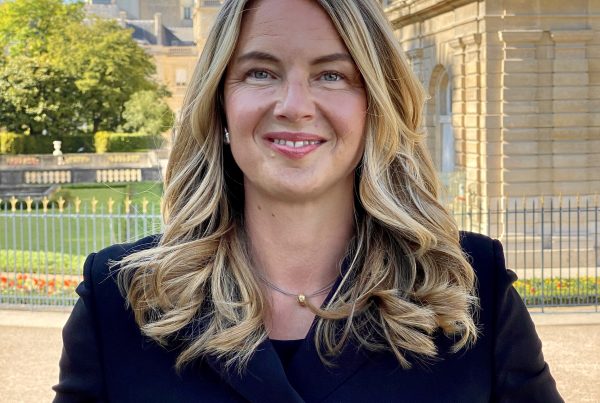Every year around the same time I start reflecting on my holiday letter by first reading what I wrote a year ago. Many thoughts I raised last Christmas have continued to move me in 2022. While my personal perspective on another year filled with inspiring insights and exceptional encounters is positive, I feel that the world’s state-of-mind is worrying and less optimistic than one year ago. In short: 2022 did not live up to its expectations for many people on this planet, I guess. So, what can we do to fix it or at least support an improvement?
Besides all economic, environmental, and political turmoil which I will not repeat here my biggest concern is how people acquire knowledge, process it, decide upon it, react to it, then interact socially, and how a complex web of relationships develops from this exchange which we used to call society.
“We the people” – the first three words of the United States’ constitution – is maybe the most powerful statement of what society was meant to be. They declare that the Constitution derives its power, not from a king or authority but from the people themselves. This concept of popular sovereignty, power to the people, is the foundation upon which the entire Constitution depends. However, looking at the last couple of years we rather get the impression that a “king” used and abused power and “we the people” is history.
“We” implied a certain sense of community, group or even team that may be diverse but relates to the same values and ideals of one country. The widening social divide and a lack of joint commitment have diminished the team’s power and I am doubtful that a joint understanding of “we the people” still exists. So, is the idea of (forming and shaping) a society “outdated”? What is meant by a society? It is genuinely understood as a group of individuals involved in persistent social interaction, or a large social group sharing the same spatial or social territory, typically subject to the same political authority and dominant cultural expectations.
This does not sound too bad to me but interestingly the Gestalt of “society” or rather the commitment to the same is perceived by many people in Westernized countries as a sacrifice instead of an opportunity. How much am I willing to give up or curtail my individualistic needs and established entitlements for the greater good? Will this sacrifice “pay off” for me and myself?
I got some responses to my questions on a recent trip to Japan where the concept of society is a different one and the understanding of “we the people” is driven by mutual respect and the belief that each member of the society has a clear role in contributing to the greater good. In the following, I would like to share a summary of my conversations and observations with you. I acknowledge they are colored by subjective human perception but might help to understand and act on societal failure in Westernized countries.
From an Asian point of view Westernized systems are driven by “bossiness” and suspicion. Westerners are “hunters” and always seeking for “more” – increase in wealth, status, and individualistic experience. To the contrary, even in the countryside where land is inexpensive, Japanese houses and cars are small, and people seem to be content & balanced (of course, not everything is “rosy” in Japan and the pressure to fulfill your role in society has had its effects on mental health as well). Nevertheless, status seems to be of lower importance. This “contentness” feels intimidating to Westerners. The Japanese frame of reference is agriculture. Everything is thought through in context – the land and nature matter.
Nevertheless, there are differences among Asian cultures and their understanding of the collective versus the individual. Whereas the collective dominates the individual in China, Japan has managed to cultivate individualism within the collective. Trust and respect carry a society and democracy. Radical streams develop when individualism supersedes the collective and suspicion rules. This raises the question whether capitalism pushed consumerism and related individualism to a point that people are overwhelmed with the wealth of decisions they are supposed to make every day in their lives? People are told that “you can do anything – your happiness & success are at YOUR fingertips”. This self-sovereignty apparently undermines trust in institutions and human context. Consequently, the burden on the individual aggravates in Westernized countries.
At a recent dinner we were talking (well, gossiping) about a mutual acquaintance and I asked whether they had met in the last couple of months and how he was doing. My friend was obviously not very inclined to get together with that said acquaintance and murmured that “he is one of these moi-je kind of persons” – the double pronoun people use who like to talk about themselves and thereby verbally wish to underline their opinion/importance in French. They also have the tendency not to listen and not being particularly interested in their conversational counterparts. I felt sympathetic with my friend’s disinterest in engaging further with this acquaintance. But at the same time, I realized that these overshooting one-directional “moi-je” verbal chatterboxes become more and more frequent and instead of engaging or interrupting them we just leave them, check-out and let them talk.
Our conversation reminded me of an article by Siddarth Venkataramakrishnan in the Financial Times weekend magazine entitled “My chatbot fascinates me, even if the conversation’s just OK.” It stated that “A chatbot offers something different: It’s available 24/7 and there is nojudgment on what you say. That makes it appealing compared with human conversations with consequences.” As Kanta Dihal stated “…chatbots could encourage a withdrawal from society;” seeming a perfect match for our acquaintance.
At the same time this past summer Meta started imitating TikTok by randomly suggesting videos and other content in people’s feeds because evidence had shown that user’s preference was easy-to-digest random entertainment instead of engaging with “friends” which obviously also enhances the withdrawal from society and causes less engagement with people, and less exchange of information or people-bound knowledge.
In this respect, David Foster Wallace warned already around the turn of the century that “We have to develop inner devices to turn off pleasure because the technology is going to get better and better and it will become easier and easier and more convenient to sit alone with images on a screen given to us by people who do not love us but want our money and that’s fine if consumed in low doses but if it is the basic main stable of your diet you’re going to die.”
Well, maybe you do not die, but social interaction, knowledge exchange, and the societal structure for sure. And then the vicious circle unfolds: people are left alone with making a ton of decisions to pursue happiness and instant gratification. Since they isolated themselves due to a) the technological capability, b) their market-drivenindividualism, and c) their self-fulfillment, they lack any commonframe of reference and belief that could provide reassuring support in their reasoning and decision-making process. Consequently, they turn to anybody or any device who/that provides “easy-to-digest” validating content which isolates them ever more.
Reason often settles on the most rudimentary popular available information. And then we ask ourselves why some people are convinced of their opinion (and fiercely defend it) although all learned evidence stands to the contrary? In these times we are reminded daily that we wish to be entertained, gratified, and need to feel good. Engaging with conflicting information and human standpoints which will prove challenging to our respective comfort zones can clearly not be seen to serve self-realization well.
Ironically, although people in the Western world have lost trust in authorities when it comes to well-reasoned advice, they believe in some news such as for example the lifting of Covid-19 measures – although most of those decisions were purely politically driven (i.e., elections were approaching) and lack any public health evidence.
Getting back to my initial question of what we can do to brighten up the skies and support improvement of human engagement I would like to share another brief summary of my observations from Japan on “what makes (or breaks) a society”:
- Respect,
- Thoughtfulness,
- A humble relationship to nature,
- Long and deeply rooted culture & belief,
- Context-related decision-making and innovation,
- A “healthy” sense of individualism with respect to the collective society.
With these essential ingredients in tow human exchange will unfold for society to thrive. However, as beautiful as these virtues & values sound, we must acknowledge that the majority may stand contradictory to consumerism and the cherished excessive individualism. So, these ingredients need to be rediscovered and then reinstilled to set a nurturing basis for a healthy human exchange. In consequence, we will safely engage in a dialogue where you gladly “rub yourself” against controversial insights and opinions.
Will it pay off? That will be a personal and communal judgment to make. In the seasonal spirit of togetherness why not give it a shot, step out of the vicious circle, and engage in human dialogue over the holidays?
To conclude I would like to thank our clients for their appreciation, trust and the insightful dialogue that made this year special in many ways – exciting, inspiring, and also and always a great learning experience. Many new encounters crossed our path and made 2022 a very busy and enjoyable year. To all of those goes my gratitude! We are always here for you and happy to help if we can.
As always take care, be safe, and enjoy what you can in this holiday season and beyond. Stay tuned for any updates KatharinaJanus!

Prof. Dr. Katharina Janus
CEO and Founder of the Center for Healthcare Management, Paris, France
President and CEO, ENJOY STRATEGY, Europe & US
https://katharinajanus.com

![[PERSPECTIVE by @katharinajanus] ON (KNOWLEDGE) EXCHANGE](https://katharinajanus.com/wp-content/uploads/2020/06/IMG_7809-scaled.jpg)

